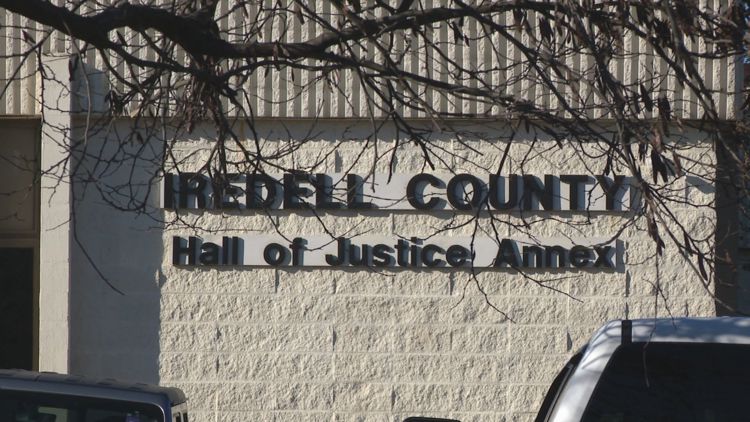

Seven of the 15 inmates who received commuted sentences were from the Charlotte area.
STATESVILLE, N.C. — Two weeks after Gov. Cooper’s last day in office, multiple North Carolina District Attorneys are pushing back on his last-minute announcement to commute 15 death row cases to life in prison without parole.
Seven of the 15 inmates who received commuted sentences were from the Charlotte area. That includes Rayford Burke, a case in District Attorney Sarah Kirkman’s district that covers Iredell and Alexander counties.
“There were a few emails back and forth, and I didn’t know where it stood, or if they were even considering it again,” Kirkman said. “And then, to find out New Year’s Eve that this is what happened, it was just it was kind of hard news to take.”
Burke was initially acquitted of a Statesville murder in 1991. However, he was later sentenced to death for killing Timothy Morrison, a man who testified against Burke in the first trial.
Though the clemency office had reached out to her for initial conversations about this case, she was surprised to learn of the decision at the same time as the general public.
“It goes to the very heart of our justice system, I would say, that somebody needs to testify and do the right thing, and then the defendant goes back and murders him,” Kirkman said.
She now joins multiple other DAs who are criticizing Cooper’s decision—and how he made it.
Union County District Attorney Trey Robison, who released the following statement:
“While the governor’s authority to commute sentences is not in question, his handling of the case is troubling,” Robison said. “In commuting Strickland’s sentence, Governor Cooper showed no regard for the criminal justice process that led to Strickland’s rightful placement on death row.”
WCNC Charlotte also spoke with Randolph County District Attorney Andy Gregson.
“I’ve been a state prosecutor for 30 years. This is the first time that I can recall something on this scale, especially being done with such a short window,” Gregson said.
Though his district did not have any commuted sentences, he said other DAs requested the petitions for clemency and did not receive them. He points to the state legislature for next steps.
“It’s without question that this is an enumerated power of the governor in the North Carolina constitution, but I have to say that I believe that there may be some appetite to at least impose some order in the process, so that victims have a guaranteed say, so that prosecutors can see the petition,” Gregson said. “I think we owe that to the families of these victims that this process is done with due process and with concern for at least their input.”
He also mentioned a law that would allow some of the older cases to argue they should be eligible for parole.
“That’s called a prohibition against ex post facto, which means after the fact,” Gregson explained. “We cannot impose a sentence that was not allowed under the law that was in effect at the time.”
There’s concern that any case that was tried before North Carolina had the crime of life in prison without parole, that defendants will push for parole.
Rayford Burke’s case is old enough to fall under this, but Kirkman does not think that will happen. However, she is still concerned, both for the families of the victim and for the jury that came to the difficult decision.
“It just doesn’t take into account the rule of law, which is how we operate, and it just completely disregards what the jury decided back in 1993, just second guessing everything that happened when the case went to trial,” Kirkman said.
No executions have been done in North Carolina since 2006. However, it has the fifth largest death row in the country.
Cooper’s call has been praised by multiple civil rights groups, including the ACLU of North Carolina.
In a statement, Executive Director Chantal Stevens said, in part: “We have long known that the death penalty in North Carolina is racially biased, unjust, and immoral, and the Governor’s actions today pave the way for our state to move towards a new era of justice.”
WCNC Charlotte reached out to the Governor’s office about the DAs’ concerns but has not heard back.


